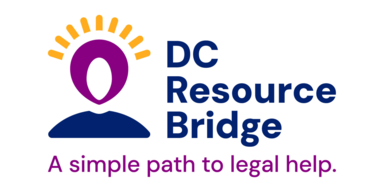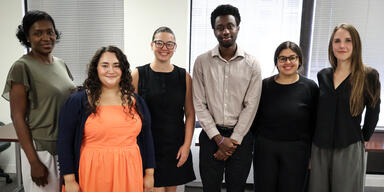
In the midst of a highly uncertain time, when planning out the next week can feel next-to-impossible, my time at Legal Aid has given me a degree of certainty about my future. As a legal assistant at Legal Aid, I have watched our attorneys secure victory after victory for our clients. Not only has this experience inspired me, but it has also directly informed my own choices about graduate education and helped me envision how I might maximize my impact throughout my career.
I have not always been so sure of my career plans. As a member of my university’s Student Labor Alliance, I saw the full extent of wage theft in my local community and developed a deep commitment to economic justice issues. But I used to agonize over what felt like an impossible decision: whether to study public policy, so I could spend forty hours a week writing policy memos in an office far removed from the people I purported to help, or to go to law school, dedicate my career to small-scale cases with individual clients, and struggle continuously against policies I could not change. As I have watched attorneys at Legal Aid advocate both for individual clients and for policies that will meet their needs, I have realized that I do not have to choose. The brilliant, tenacious attorneys at Legal Aid have wholeheartedly rejected this choice--and are all the more effective for it.
The past few weeks have clearly reaffirmed the strength of Legal Aid’s advocacy work, as my supervisors have deployed their expertise and strategic thinking to secure concrete policy changes for our client community during a public health crisis of unprecedented proportions. But I first recognized the full force of Legal Aid’s advocacy efforts long before the COVID-19 outbreak, when I heard Legal Aid attorneys argue for stronger rent control measures before the DC Council. Referencing their experiences representing tenants’ associations across the city, our attorneys described how landlords with positive net incomes have successfully petitioned for “hardship” rent increases. They also laid out how landlords have manipulated the voluntary agreement process to secure rent increases of $1,500 or more. Though they cited data as well, their work on related cases had clearly informed their analysis and alerted them to significant problems with the current law. With their ability to speak movingly from personal experience, grasp how apparently minor details in a bill may impact entire communities, and articulate how individual outcomes add up to form systemic problems, attorneys with casehandling backgrounds have significant advantages in the fields of policy analysis and advocacy. This principle, as demonstrated by Legal Aid’s work, has given me confidence about my own chosen path.
Over the past week, I have submitted my final paperwork to confirm my place at two separate graduate programs. I will spend the next four years earning both a J.D. and a Master of Science in Social Policy. After completing both degrees, I intend to weave together policy advocacy and direct legal services throughout my career. I may not know whether I will be working from home or the office in two months’ time--but thanks to the lessons I have learned from my supervisors at Legal Aid, I know that I am on track to become an effective advocate for the communities that we serve.




